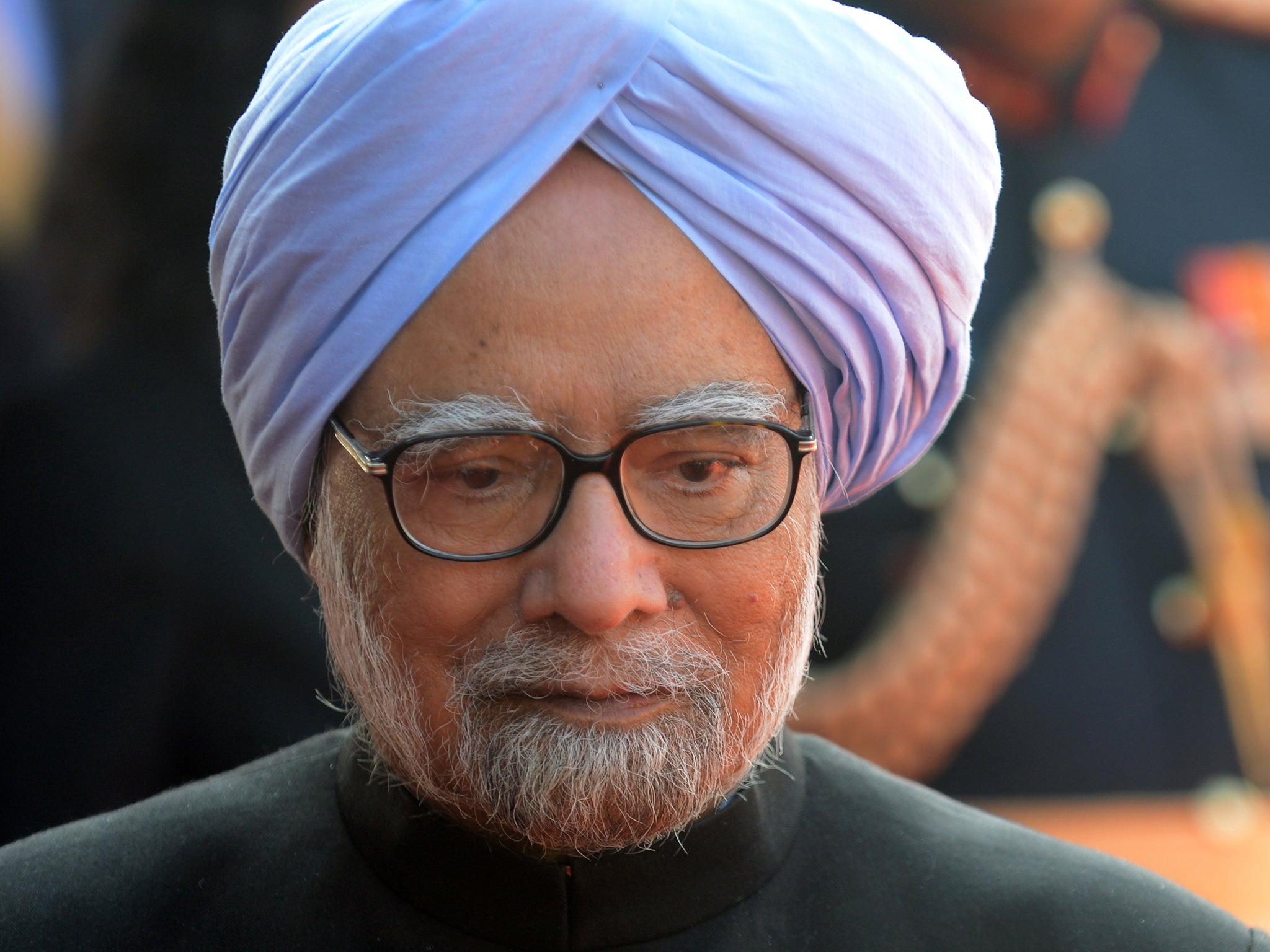Indian Prime Minister Manmohan Singh announces retirement, launches scathing attack on possible successor
Mr Singh threw his support behind Rahul Gandhi, claiming it would be 'disastrous' for the country if Hindu nationalist leader Narendra Modi became the next leader

Indian Prime Minister Manmohan Singh has announced he will retire after the country’s summer election after 10 years of leading the world’s biggest democracy.
In a rare press conference today - his first in three years and only third in his time as leader - the 81-year-old threw his support behind Rahul Gandhi as the person to succeed him if the Congress Party, to which both belong, win the election.
“In a few months' time, after the general election, I will hand the baton over to a new prime minister,” Mr Singh said.
“Rahul Gandhi has outstanding credentials to be nominated as the candidate and I hope our party will take that decision at an appropriate time.”
Mr Singh’s party is however lagging behind the Hindu nationalist Bharatiya Janata Party (BJP) led by Narendra Modi in opinion polls.
In a scathing attack on Mr Modi, the man who could well replace him, Mr Singh said he "sincerely believed" that it would be "disastrous for the country to have Narendra Modi as the prime minister."
Mr Modi is campaigning on a platform to revive an economy growing at its slowest in a decade and end the red tape and corruption that have bedevilled the Congress-led coalition.
The Congress fared badly in elections in four large states towards the end of last year, largely due to voters' anger over corruption.
Mr Modi, chief minister of western Gujarat state for the past 11 years, is credited with turning his western state into an industrial haven. But critics question whether the Hindu nationalist chief can be a truly secular leader over India's many cultures.
Mr Modi has been accused of doing little to stop anti-Muslim riots in the state in 2002, which left more than 1,000 people, mostly Muslims, dead. Mr Modi denies wrongdoing and a Supreme Court investigation found no evidence to prosecute him.
Referencing the incident, Mr Singh turned a suggestion that he had been a weak prime minister into a further attack on Mr Modi.
“If by strong prime minister you mean that you preside over the mass massacre of innocent citizens in the streets,” Mr Singh said. “I do not believe that sort of strength this country needs. Least of all in its prime minister.”
The Congress Party is due to hold a top-level meeting on January 17 and is anticipated to announce its candidate - expected to be Mr Gandhi - soon afterwards.
Mr Gandhi, 43, belongs to the long established Nehru-Ghandi political dynasty. His grandmother, Indira Gandhi, and his father Rajiv Gandhi, both of whom were assassinated, have served as Prime Minister.
Mr Gandhi's great-grandfather, Jawaharlal Nehru was the country's first Prime Minister, while his mother, Sonia Gandhi, an Italian native, is the current chairperson of the Congress Party.
Subscribe to Independent Premium to bookmark this article
Want to bookmark your favourite articles and stories to read or reference later? Start your Independent Premium subscription today.

Join our commenting forum
Join thought-provoking conversations, follow other Independent readers and see their replies